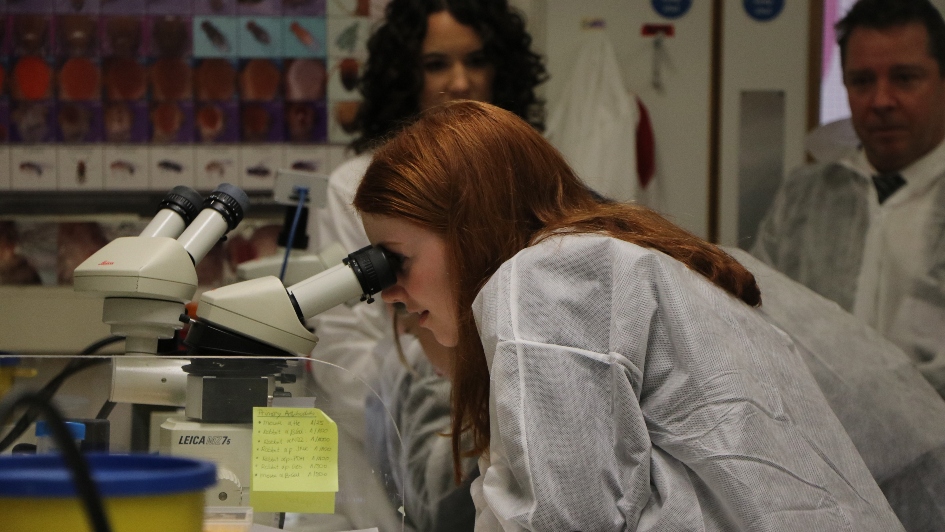
Image: Two students looking into a microscope
To mark the International Day of Women and Girls in Science this year, we're sharing some words of encouragement and advice from our scientists to inspire the next generation of young women starting out in STEM.
We also hosted a live audio discussion on Twitter, in which you can hear our researchers in conversation exploring the unique challenges that women in science can face – from lack of representation in leadership to the challenges of work/life balance – and breaking down the biases about what it means to be a woman in science and society.
Listen back to our Twitter space discussion.
What advice would you give to your younger self?
Our researchers share some thoughts here on the advice they would give their younger selves:
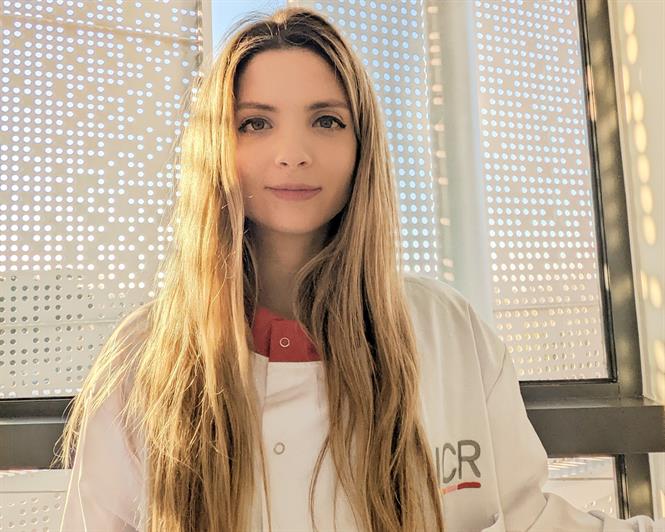
Vivian Dimou, a Postdoctoral Researcher and cancer immunologist at the ICR, said:
“If I could give an advice to my younger self that would be to not be afraid to apply for interesting positions and roles for which I might think I am not a 100% match.
“All that really matters is to always try for the best and not miss great opportunities out of fear. More often than not, showing your genuine enthusiasm for science and the willingness to learn and evolve, are the most sought-after characteristics for successfully acquiring a new position even, if you only have 4/5 of essential requirements!”
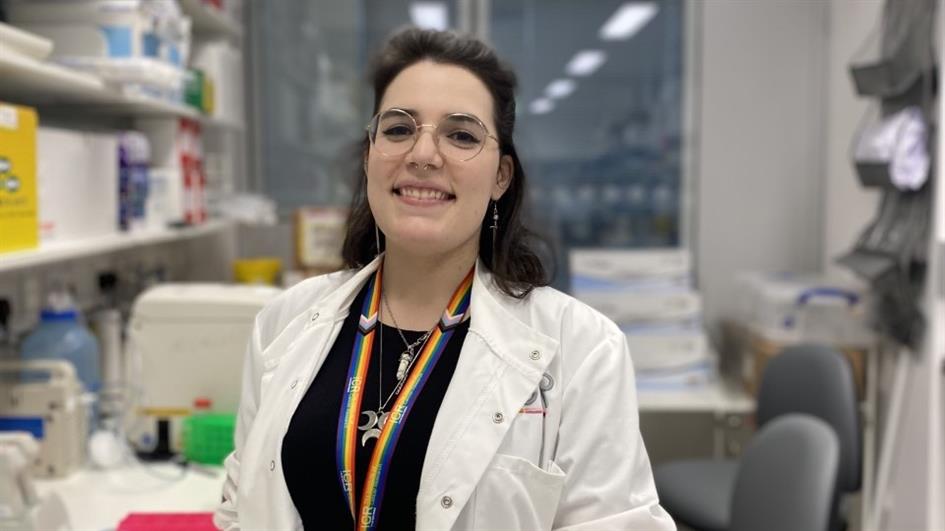
Nicole Pandell, a PhD Student in the Tumour Functional Heterogeneity Team at the ICR, said:
“If I could give advice to my younger self or any young person interested in science, I would say follow what interests you the most.
“Don't let the expectations of others change how you want to explore life or express yourself. Interest, passion, curiosity, those are all fundamental elements of motivation, and with a strong sense of motivation you can do anything.”
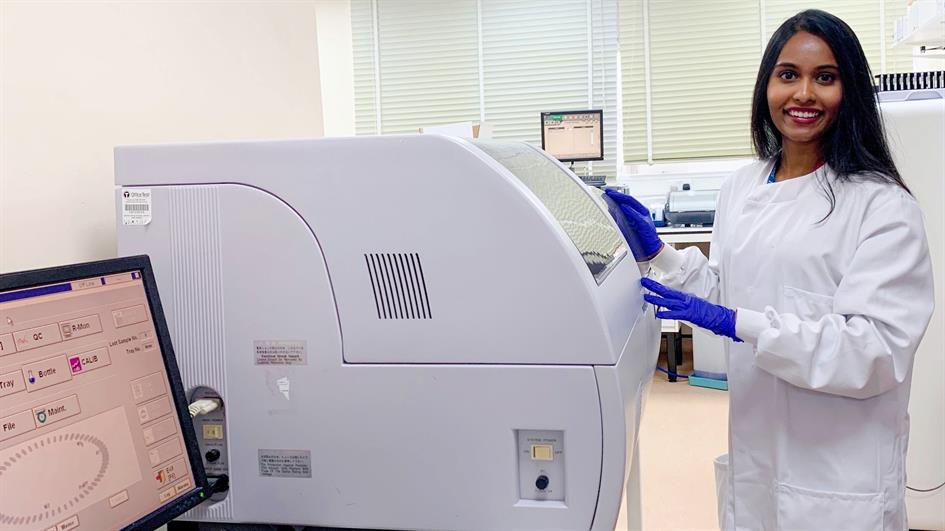
Nithya Parantham, a fourth-year PhD Student based in Clinical Biochemistry at The Royal Marsden, said:
“I would want to pat myself on the back, and say, “you’ve got this.” There’s a lot of stress that comes from self-imposed pressure. Just remember, that even the most senior members in science may deal with some level of imposter syndrome. You are enough and what you bring to the world of scientific research is unique. You’ve got this, keep being you and don’t be afraid to ask questions, explore different fields and find what you’re truly passionate about.”
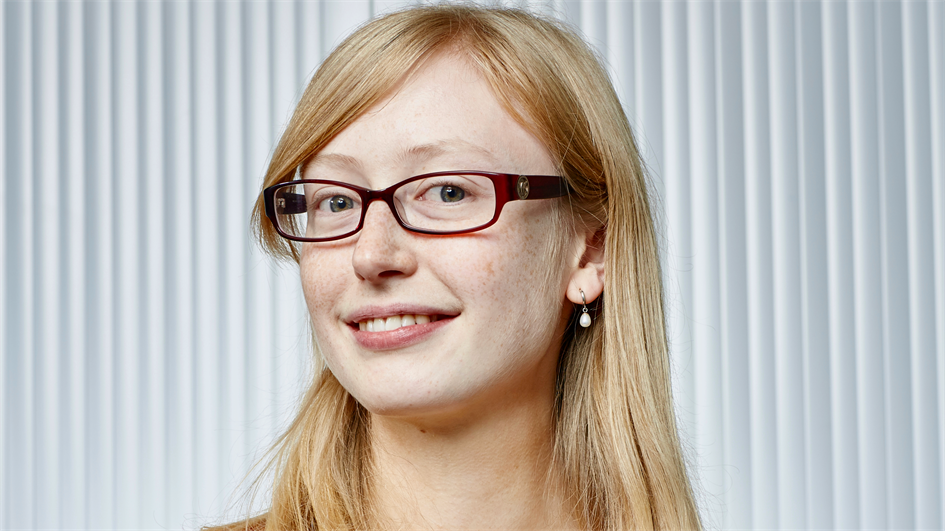
Holly Tovey, a senior statistician and part-time PhD student, based in the Clinical Trials and Statistics Unit at the ICR, said:
“The advice I would give my younger self is to try not to compare yourself to other people.
“Everyone has their own pathway and their own goals. You have no idea where someone else is in their journey, what they've had to overcome or what help they've had to get there so there is no point judging yourself or your achievements against other people. I think this is true both professionally and personally.”
Supporting our women in science
Find out more about the work we are doing to increase equality and diversity across the ICR and ensure full, equal access to opportunity for all. We are proud members of the Athena SWAN Charter, a scheme promoting the careers of women in science, engineering, technology, maths and medicine through excellent employment practice in higher education.
Our Chief Executive, Professor Kristian Helin says:
“I want the ICR to be a workplace which reflects our wider community, and where everyone feels valued and supported at each stage of their career. Our strength lies in our diverse workforce - we need differing perspectives and insights to enable a creative, vibrant and successful culture.
“Like most places, we have work to do as we strive for equity in the workplace - and I am committed to playing our part in tackling systemic barriers in academia, and to make meaningful progress in addressing representation in the workplace.”